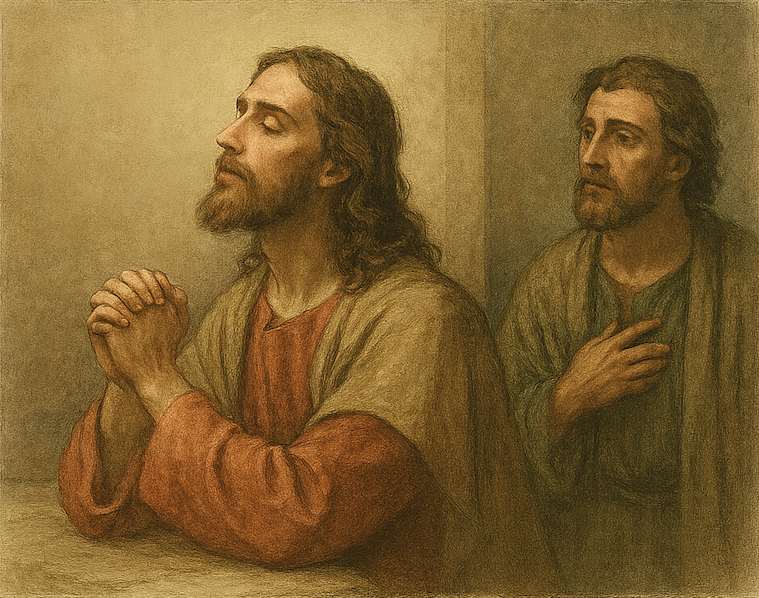“Lord, Teach Us to Pray” — A Reflection on Luke 11:1–13
In today’s Gospel, we witness a profound and intimate moment between Jesus and His disciples. One of them approaches the Lord with a simple but powerful request: “Lord, teach us to pray.” It’s a humble plea—one that echoes through every heart that desires to grow in relationship with God. Jesus responds not with complex theology, but with a prayer that would forever shape Christian spirituality: the Lord's Prayer, also known as the Our Father.
Just as Abraham pleaded for mercy over judgment, Jesus teaches us to approach our Heavenly Father not with fear, but with childlike trust. He assures us that if we “ask, it will be given; seek, and you will find; knock, and the door will be opened” (Luke 11:9).
But what is prayer, really?
Our pastor reminds us that prayer is not just words—it is relationship. It is a sacred conversation, a dialogue between the heart of the believer and the heart of God. St. John Climacus once described it as “a conversation between our conscious personality and God.” But even more, we are reminded by St. Paul that prayer is never a solo act. He writes, “We do not know how to pray as we ought, but the Spirit Himself intercedes for us with groanings too deep for words” (Romans 8:26). When we open our hearts in prayer, the Holy Spirit joins us, prays within us, and lifts us into the divine communion of the Trinity.
This Sunday’s readings invite us into that sacred mystery. In the first reading, Abraham becomes an intercessor, boldly pleading for the cities of Sodom and Gomorrah. He doesn’t bargain with God out of cleverness or pride, but out of compassion and a persistent hope in God’s mercy. Abraham models the kind of prayer we are called to—one rooted in deep concern for others. His courage reminds us to stand in the gap for those who may not yet know God or who have drifted far from His love.
Just as Abraham pleaded for mercy over judgment, Jesus teaches us to approach our Heavenly Father not with fear, but with childlike trust. He assures us that if we “ask, it will be given; seek, and you will find; knock, and the door will be opened” (Luke 11:9). These are not empty promises—they are invitations to trust deeply in the generosity and faithfulness of God.
Our pastor reflected today that prayer is about faith, humility, and persistence—not eloquence or knowledge. It is in consistent and heartfelt prayer that we are gradually transformed. This is why Jesus teaches us to ask for daily bread—not just food for the body, but the spiritual nourishment we need to face each day with courage, grace, and love. And within the Lord’s Prayer lies one of the most significant challenges and blessings of Christian life: “Forgive us our trespasses, as we forgive those who trespass against us.”
Forgiveness, he reminded us, is not just a gift we receive but one we must extend. In doing so, we are set free—freed from bitterness, anger, and the weight of resentment. It is only when we forgive that we can fully receive the healing power of God's mercy in our lives.
St. Paul, in his letter to the Colossians, echoes this theme of grace and restoration. He speaks of how, through baptism, we were buried and raised with Christ, and how the cross has canceled our debt. This is the heart of the Good News: God is always ready to forgive. Our job is to show up with open hearts and a willingness to receive.
So today, may we take to heart the lessons of Abraham, Paul, and Jesus Himself. May we approach prayer not as a ritual to check off, but as a lifeline to the One who loves us beyond measure. May we pray not only for our needs but for our neighbors, our families, our communities, and yes—even for the world. And above all, may we never stop asking, seeking, and knocking—because the Father is always listening, and His heart is always open.
Reflection Questions:
How has your understanding of prayer deepened over time?
What are you persistently praying for today?
Is there someone in your life you need to forgive—or someone you need to pray for with compassion?
Let’s keep the dialogue going—with God and with one another.
